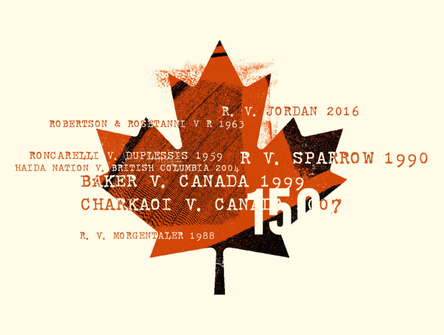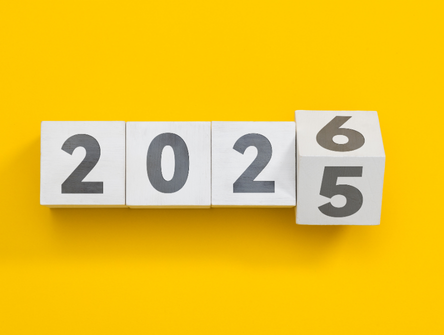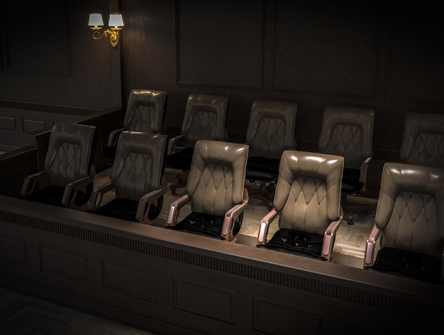Breaking the democratic deadlock
Citizens' assemblies are increasingly called upon to take part in the process of policymaking. But we need to be realistic about their potential.
.jpg?ext=.jpg)
Such is the state of political partisanship in the developed world in 2023: about the only thing people can get together on is the suspicion that what we're doing isn't working.
In an age when threats like climate change and runaway AI test the limits of the average person's ability to imagine the future, representative systems of government are getting sidetracked into baffling culture wars and ad hominem brawls. And anyone who spends an afternoon watching the antics in Parliament knows this isn't just an American problem — you can't blame MAGA for the state of question period.
What should we do when the problems we face seem to overwhelm the democratic systems meant to respond to them? Canada was an early adopter of the "citizens' assembly" model — the idea of bringing together ordinary citizens chosen (more or less) at random, putting them in a room with experts and charging them with coming up with policy answers to big questions.
The Canadian Commission on Democratic Expression, launched in 2020, used citizens' assemblies to draft recommendations on combatting disinformation, abuse and exploitation online. It released a final report late last year. In April, Yukon MLAs voted to convene a citizens' assembly to study electoral reform.
Those efforts followed attempts in Ontario and B.C. to use citizens' assemblies to suggest alternatives to the single-member-plurality (SMP) system, better known as "first past the post." The provincial governments chose to put those reform proposals to referendum votes, which failed in both cases.
Advocates of citizens' assemblies see the B.C. and Ontario experiences as cautionary tales: citizens' assemblies, they say, can't do what they're meant to do unless they're launched in good faith by governments willing to follow through on their recommendations.
"Where they can fail is where they are regarded as a kind of add-on, something to be ignored if the government doesn't like the outcome," said Catherine McKenna, former federal minister of the environment. "They can't supplant the work of Parliament, but there should be some way of bringing them into the process."
To work, citizens' assemblies must be insulated to a large degree from governments and their vested interests. Participants are chosen through sortition — random selection — usually with guidelines to ensure gender or regional balance. The sortition processes for the B.C. and Ontario assemblies on electoral reform controlled for geography, selecting a certain number of assembly members from each electoral district.
In a 2012 paper, Michael Pal of the University of Ottawa's law faculty argued that with both the B.C. and Ontario assemblies, sortition filtered through geography ended up picking assembly members who saw themselves as representing their home regions. That, he said, discouraged them from considering electoral reform options that would do away with geographical ridings.
Jonathan Rose, head of the department of political studies at Queen's University and former academic director of the Ontario citizens' assembly on electoral reform, said he saw that dynamic at work during assembly deliberations.
"When we started, there were members from Northern Ontario who said they wanted something like a northern caucus," he said.
"I went to great lengths to convince them that they weren't there to speak on behalf of any area or gender or socioeconomic status — that they needed to think like jurors. Geography is baked into electoral systems anyway, so bringing it into the citizens' assembly process can be a problem."
The referenda that followed the assemblies in Ontario and B.C. gave provincial governments another way to put their thumbs on the scale. Both governments imposed supermajority thresholds of 60% for approval.
B.C.'s 2005 referendum recorded roughly 58% support for reform; without the supermajority, the reform proposal would have succeeded. (The second B.C. referendum in 2009 and the Ontario referendum in 2007 recorded 39% and 37% support for reform, respectively.)
"The killer in the B.C. referendum was the 60% supermajority — a threshold virtually impossible to meet," said Réal Lavergne, an Ottawa-based advocate for electoral reform. "And this was a recommendation that really would have made history."
"I don't think the assemblies on electoral reform necessarily failed," said Peter MacLeod, co-founder and principal of MASS LBP, a company that conducts citizens' assemblies.
"The B.C. referendum (in 2005) reached 57.7% support. How often do governments get elected in this country with 57.7% support?"
Critics also accuse the B.C. and Ontario governments of dumping the assemblies' reform proposals on voters without properly explaining them. "In B.C.'s first referendum," Pal wrote, "there was no government funding for 'Yes' and 'No' campaigns, and little support to publicize the Assembly's deliberations beyond a mail-out of the Assembly's proposal to each household six months before the voting date."
"No effort was made to explain the process and its conclusions to voters in the referendum, which undermined the entire effort," said Rose. "Some might say (the electoral reform assemblies) were set up to fail."
Governments also should avoid giving citizens' assemblies mandates that are too broad or ill-defined, said Lavergne. In reply to the gilets jaunes protests that paralyzed France in 2018, President Emmanuel Macron launched a citizens' assembly on climate policy. Some of its recommendations made it into law — such as a limited ban on domestic flights — but hundreds were never adopted.
"Citizens assemblies tend to be bold. Why wouldn't they be? Their participants don't have political careers to protect," said Lavergne.
"But it's important that their recommendations be realistic and practical. This can be achieved by narrowing their mandate and bringing in political parties to discuss what they think they can do. And it would help for citizens' assemblies to cite some short-term measures that can be adopted right away."
But despite the many ways citizens' assemblies can be undone by politics, advocates say they can break political deadlocks and arrive at compromises elected leaders might struggle to visualize. In 2017, a citizens' assembly in Ireland recommended ending a constitutional ban on abortion. That recommendation is law now.
"Public opinion can change faster than party ideologies do. Parties tend to be closed shops — to run as a candidate, you have to share the party's beliefs and policies," said MacLeod. "Citizens' assemblies allow governments to explore how public opinion changes in a safe space that lets them embrace new ideas. They give governments permission to make changes they otherwise might find alarming."
For politicians grappling with difficult issues, polls are only useful up to a point. They tell you what people think now, in isolation, without engaging with their fellow citizens (or with the law or science). Citizens' assemblies can tell political leaders where public opinion might go in the right circumstances.
Assembly participants argue with each other, grapple with the research, grill the experts and fight their way to a consensus. That process involves abandoning some preconceptions and dogma — something serving politicians can be very reluctant to do.
"People evolve when they join these assemblies," said Rose. "It disabuses them of negativity, makes them understand the constant tradeoffs that are a necessary part of politics. And they produce a democratic dividend as well because the experience is so incredible that many of them go on to encourage others to take part."
Citizens' assemblies can also have a civilizing effect on politics and politicians. It's much harder for a leader to demonize someone else's ideas when they're coming from a retired grandmother in Port Alberni.
"And in cases where politicians have a clear conflict of interest — such as electoral reform — citizens' assemblies can deny excuses to leaders before they use them," said Lavergne.
"After reneging on his electoral reform process, [Prime Minister Justin] Trudeau claimed there was no consensus on a path forward. With a citizens' assembly making the recommendations, he wouldn't have been able to make that claim."


